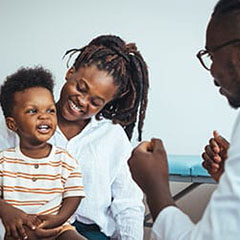-
Treating Cancer Patients With COVID-19: A New York City Experience
An analysis of cancer patients who were infected with the coronavirus and treated at Memorial Sloan Kettering Cancer Center in New York City suggests certain risk factors may predict more severe COVID-19.
by Anna Azvolinsky
-
June 26: The Week in Cancer News
A study finds that hereditary mutations are elevated in early-onset cancers, and initiatives aim to improve treatment for children with cancer.
by Kate Yandell and Marci A. Landsmann
-
Why Are Early-Onset Cancers Rising?
Some cancers that are most commonly diagnosed in older adults are becoming increasingly prevalent in young adults.
by Kate Yandell
-
What is a Super Responder?
Researchers are investigating why certain patients have an exceptional response to a particular drug.
by Bradley Jones
-
COVID-19 Exposes Health Inequities
At a symposium held during a virtual meeting of cancer researchers, panelists discussed the disproportionate impact COVID-19 has had on Black and Latino Americans, as well as members of other minority groups.
by Kevin McLaughlin
-
Pediatric Oncologists Underestimate Needs of Minority Parents
Research describes how communication gaps can shift extra burden to parents who are members of ethnic and racial minority groups.
by Marci A. Landsmann
-
Pushing Progress Forward
NCI Director Norman E. “Ned” Sharpless addresses disparities and maps out plans for the future amid “profound upheaval.”
by Kevin McLaughlin
-
June 19: The Week in Cancer News
A study indicates that a sedentary lifestyle increases risk of death from cancer, and the Food and Drug Administration approves the human papillomavirus vaccine for prevention of head and neck cancer.
by Kate Yandell
-
Cancer and Older Adults: Can Oncologists Do Better?
Geriatric assessment reduces toxicity from treatment and improves quality of life in older adults with cancer.
by Marci A. Landsmann
-
June 12: The Week in Cancer News
The American Cancer Society updates its guidelines on diet and physical activity, and a study projects that caring for Americans with cancer will cost more than $245 billion by 2030.
by Kate Yandell
Cancer Talk
Many People Don’t Get Colonoscopy After Receiving Abnormal Blood Tests
About half of people who receive abnormal results from colorectal cancer screening tests don’t follow up with a colonoscopy.
by Laura Gesualdi Gilmore
Can Steroids Impair Immunotherapy for Cancer?A new study suggests steroids could blunt the effects of some immunotherapies, but researchers say they remain necessary for some patients.
by Kyle Bagenstose
Treatment Combination Improves Survival in Platinum-resistant Ovarian CancerPreliminary results found that combining relacorilant with nab-paclitaxel improved outcomes for women with advanced ovarian cancer.
by Sandra Gordon
CAR T-cell Therapy Shows Response in Rare Brain CancerPotential new approach to treating diffuse intrinsic pontine glioma uses engineered immune cells infused directly to the brain.
by Taneia Surles














